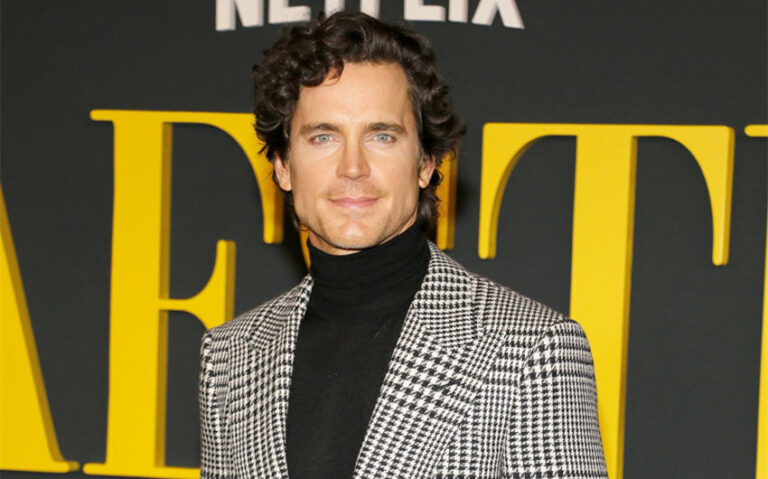Robert Kiyosaki’s Net Worth: The Full Story Behind the “Rich Dad” Empire and His Real Financial Legacy
Robert Kiyosaki is one of the most recognizable names in personal finance. For nearly three decades, his bestselling book Rich Dad Poor Dad has influenced millions of readers around the world, inspiring beginners, entrepreneurs, and seasoned investors to rethink how they build wealth. But as his global profile has grown, so has the public curiosity around his personal finances—especially one question: “What is Robert Kiyosaki’s net worth?” The answer is more complex than a single figure. It includes book royalties, real estate holdings, seminar income, private companies, brand licensing, investments, and debt strategies that make his financial picture unlike most traditional entrepreneurs. This article breaks down everything known about his net worth, how he built his wealth, how he manages his assets, and why estimating his true value is so difficult.
Who Is Robert Kiyosaki?
Born in 1947 in Hilo, Hawaii, Robert Toru Kiyosaki grew up between two different financial philosophies—one represented by his highly educated, government-employed father (“Poor Dad”), and one embodied by his friend’s entrepreneurial father (“Rich Dad”). These contrasting influences eventually formed the foundation of his financial teachings, emphasizing financial literacy, assets over liabilities, and the mindset shifts needed to achieve wealth.
After serving as a helicopter gunship pilot in the Vietnam War, Kiyosaki entered the business world. His early ventures ranged from nylon surf gear to retail products, some of which succeeded and others that failed. These experiences shaped his business instincts and eventually led him to real estate investing, financial education, and writing.
The watershed moment in his career came in 1997 with the publication of Rich Dad Poor Dad. Co-authored with Sharon Lechter (before a legal split years later), the book became a global bestseller and launched Kiyosaki into worldwide fame.
Robert Kiyosaki’s Estimated Net Worth
Because Kiyosaki’s companies and assets are privately held, his exact net worth is not publicly disclosed. However, industry analysts, financial publications, and business researchers estimate that his net worth falls between:
$100 million and $200 million.
Within that range, many reputable sources tend to cite an estimate around $155 million as the most reasonable midpoint.
This number includes real estate equity, investment positions, royalties, business cash flow, brand valuation, and long-term licensing contracts. It also considers liabilities, particularly because Kiyosaki publicly promotes using debt to acquire assets. That means his asset total could be far higher than his net worth suggests—but his liabilities may also be sizable.
Why Kiyosaki’s Net Worth Is Difficult to Calculate
Kiyosaki does not fit the profile of a typical author or entrepreneur. His strategy is based on leverage, nontraditional accounting structures, and private business ownership. There are several reasons why his true net worth is hard to pinpoint:
- Most of his businesses are privately owned, offering no public financial statements.
- He uses debt aggressively—including what he famously called “good debt”—to acquire cash-flowing assets.
- Real estate values fluctuate, and his properties are not publicly disclosed.
- Licensing agreements vary and change year to year.
- Crypto and precious metals holdings are difficult to track.
- Book royalties fluctuate depending on global demand.
Because of these factors, the $100–$200 million range remains the most widely accepted estimate—and likely the closest approximation we have.
The Major Income Streams Behind His Wealth
Kiyosaki’s net worth is not the result of one successful book. Instead, his wealth comes from a network of interconnected revenue streams. Each plays a role in reinforcing the Rich Dad brand and diversifying his portfolio.
1. Book Sales and Royalties
Without question, the Rich Dad books form the backbone of his brand. Rich Dad Poor Dad has sold tens of millions of copies, placing it among the best-selling personal finance books of all time. The success spawned an entire series, including titles such as:
- Cashflow Quadrant
- Rich Dad’s Guide to Investing
- Retire Young, Retire Rich
- Before You Quit Your Job
These books continue generating royalties every year. For an author with global distribution and evergreen content, book royalties alone can provide a seven-figure annual income.
2. The Rich Dad Company and Licensing
The Rich Dad Company licenses the “Rich Dad” name to educational firms, seminar companies, coaches, event organizers, and online platforms. These licensing deals form a major portion of Kiyosaki’s revenue.
For years, Rich Dad seminars were run globally by independent companies that paid licensing fees for brand use. These events generated significant revenue—but also controversy, leading Kiyosaki to distance himself from specific operations over time. Still, the licensing model remains lucrative.
3. Real Estate Investments
Kiyosaki’s central message has always emphasized real estate as a vehicle for passive income. Throughout his career, he has invested in:
- Apartment buildings
- Commercial real estate
- Mixed-use properties
- Real estate partnerships
Many of these investments were financed through leverage, which allowed him to scale quickly. Though he does not reveal his exact holdings, he has stated that real estate makes up the largest portion of his long-term wealth.
4. Cashflow Board Games and Educational Products
Kiyosaki created the Cashflow 101 and Cashflow 202 board games as practical tools for teaching financial literacy. These games remain strong sellers in the personal-finance and business-education markets. Because they are physical products with high margins, they add significantly to his income.
5. Speaking Engagements
Before scaling back his travel schedule, Kiyosaki spoke at global events, earning substantial fees per appearance. Large conferences often paid tens of thousands of dollars for single keynote presentations. His presence on stages across Asia, Europe, and North America helped expand his brand and financial footprint.
6. Digital Media, Podcasts, and Online Courses
In the digital era, Kiyosaki has embraced social media and online content creation. His platforms—particularly YouTube and his podcast “The Rich Dad Radio Show”—attract millions of listeners. Monetization through ads, sponsorships, and course sales plays a supplementary but meaningful role in his income.
7. Crypto, Precious Metals, and Alternative Assets
Kiyosaki frequently discusses investing in:
- Gold
- Silver
- Bitcoin
- Oil and energy assets
- Private equity
A strong advocate for hedging against inflation and market volatility, Kiyosaki’s positions in these markets likely represent multi-million-dollar holdings. Like his real estate, their valuations are not publicly disclosed.
Business Challenges and Bankruptcy Controversies
While Kiyosaki has achieved immense financial success, his career has not been without setbacks. One of the most notable events was the 2012 bankruptcy filing of one of his companies, Rich Global LLC, after a legal dispute with a seminar company.
Kiyosaki himself did not file personal bankruptcy. Instead, he used corporate structures to limit liability—an approach that aligns with his long-standing emphasis on financial protection, corporate strategy, and risk management.
Though critics used the event to question his financial expertise, supporters argue that his actions demonstrated the exact strategies he teaches: using business entities to manage risk.
How Kiyosaki’s Wealth Reflects His Philosophy
Kiyosaki’s net worth is not just a number; it is a reflection of the principles he teaches:
- Cash-flowing assets create long-term wealth.
- Financial education is the foundation of success.
- Owning businesses and intellectual property builds equity.
- Leverage accelerates growth.
- Diversification protects against market risk.
Whether or not audiences agree with his more controversial opinions, his financial life is undeniably aligned with his teachings.
The Final Answer: Robert Kiyosaki’s Net Worth
Robert Kiyosaki’s net worth is widely estimated to be between $100 million and $200 million, with many sources pointing toward approximately $155 million.
This wealth comes from book royalties, educational licensing, real estate investments, the Cashflow franchise, speaking engagements, alternative asset holdings, and a decades-long global brand built around financial literacy.
Kiyosaki’s story is not simply about money—it is about creating a philosophy of wealth that resonated across generations. Whether admired, debated, or criticized, his financial legacy is undeniable, and his influence in personal finance continues to grow worldwide.
image source: https://www.entrepreneur.com/en-ae/leadership/talking-money-robert-t-kiyosaki-author-rich-dad-poor-dad/285157






